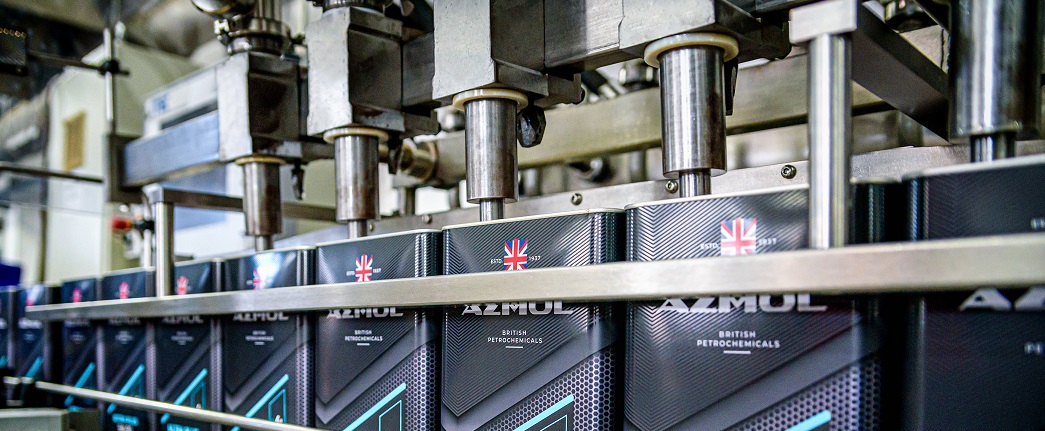
In the past few years, Ukrainian lube maker Azmol-British Petrochemicals has focused on replacing imported products used in the modern automobiles and industrial equipment. Officials claim that the strategy is helping the company grow at double-digit rates, so they intend to keep following it to a larger share of the market.
Azmol-BP, a joint venture formed in September 2016, is located in the port city of Berdyansk on the Azov Sea. Its production has been increasing 10% year on year, driven by the development of new products such as emulsifiers and hydraulic oils, the company told Lube Report.
In 2020 it held 8% share of the Ukrainian lubricant market.
“Ukrainian lubricant demand is approximately 200,000 tons per year … and we estimate that we hold around 8% of the market,” Maxim Tokin, head of the company’s marketing department, told Lube Report on Monday.
According to him, the Ukrainian market can roughly be divided into two parts, each accounting for approximately 100,000 tons of demand annually.
The first part are applications manufactured to Gost specifications, obsolete Soviet standards developed for lubricants used in Russian and Ukrainian makes of passenger cars and sport utility vehicles or decades old equipment for the mining and metallurgical complexes. The other part of the market is comprised of products used in imported equipment – automobiles and machinery that use higher quality fluids and lubricants supplied by the foreign marketers.
Tokin said that the company’s long-term ambition is to capture at least 20% of the market.
Terry Dicken, head of the British lube maker Global Lubricants, is technical director of Azmol-BP and one of the cofounders. He and some of his European and American colleagues who engage as consultants are helping the company to grow with a goal of competing with the five main foreign marketers in Ukraine: Shell, ExxonMobil, Castrol, Total and Fuchs.
Dicken said some of Azmol-BP’s production is registered under REACh, the European Union’s main chemical safety regulation. This gives the company a chance to sell some of its products in EU markets.
“The volume and types of materials produced in Ukraine is very limited. We use over 200 types of components and formulations. If we used Ukrainian raw materials that are not registered under REACh, we wouldn’t have a chance to export to Europe,” Dicken said.
In the past five years, the company’s production grew by 25%. Investments of over €10 million were poured into the modernization of the old Azmol facility that was under state control before being acquired by British and Ukrainian investors.
Dicken contended that many of former company’s problems stemmed from it being under state control. “Now, the private investors have more possibilities and freedom to develop the market in accordance with their views,” he continued. “It is one of the reasons why I entered this venture.” Dicken owns 24% of the JV.
Azmol-BP claims to have landed contracts with many high profile companies in Ukraine and to have penetrated many foreign markets.
Dicken said the company’s focus has been to develop high quality industrial lubricants used in metallurgy, primarily in steel manufacturing, especially in applications such as rolling mills. It has established a long-term relationship buying base oils from Swedish refiner Nynas, while lube additives are of European and American origin.
Dicken said 40% of the company’s production is meant for export and shipped to Eastern Europe, to Middle Eastern countries such as Iraq and to African markets such as Senegal and South Africa. “Recently we started our first shipments to Western Europe and to the United States,” Dicken said.
Like many others, the company faced difficulties during the economic downturn caused by the COVID-19 pandemic, primarily with procurement of base oils. In recent months, it saw signs of the market stabilizing.
Azmol-BP is working on a new project to renew the license for production of Castrol marine oils and other lubricants.
“In days past, Azmol produced Castrol marine oils, and we want to reestablish that relation,” Dicken said. “We started to communicate with the largest ports in Ukraine to supply marine oils. Unfortunately, all of the ports in Ukraine are controlled by the state, and working processes in this direction are running very slow.”